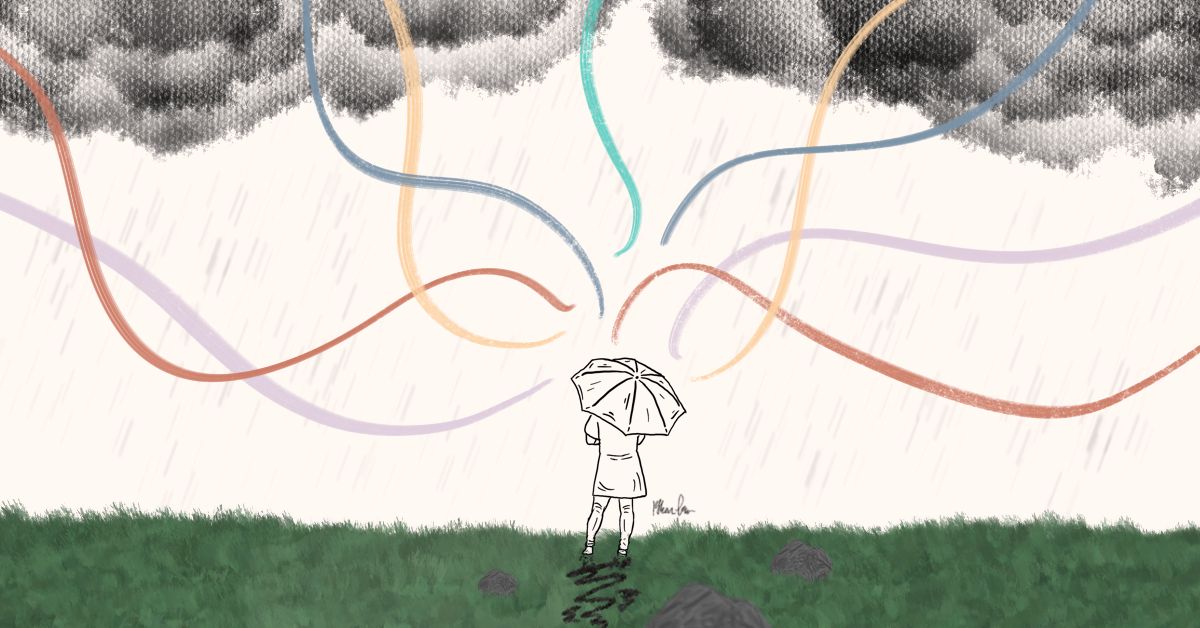A paradoxical observation I have made about the people in my life is that those who have dealt with and are healing from severe trauma — or are in recovery from severe mental illness — don’t sweat the small stuff.
They tend to be magnanimous, giving, open, and non-calculating. Having experienced firsthand the agony of extreme adversity and unbearable pain, they learnt that in order to survive, they cannot afford to exhaust any mental energy on trivial matters and pettiness. They have understood suffering enough to not engage in judgements and gossip about others.
They have, from their unfortunate yet extraordinary circumstances, learnt prematurely to accept the universality of the human condition, and to differentiate what they can control from what they can’t.
I used to believe that my chronic unhappiness could be solved by devouring self-help, and that if I internalised the words of various gurus, all my problems would disappear. Obviously, this was not the case. After meticulously reading and curating content ranging from ancient Stoic philosophy to popular psychology books to positivity accounts on Instagram, I’ve come to realise that my problems belong to a different realm. They are either biological, systemic, or deep-seated in nature, and require years of psychotherapeutic intervention to even begin to unearth. Motivational quotes and “life hacks” have done all they could for me. Hence, I like to think that I have conquered the self-help section. Everyday trials and tribulations, I am quite proud to say, hardly bother me anymore.
Having lived with chronic and intense suffering doesn’t necessarily make us stronger. What it does is it increases our apathy towards minor troubles that crop up, because we’ve got bigger demons to deal with. We start to care less about that flunked test or that rumour a colleague made about us the other day, because we no longer have the emotional capacity. Subconsciously, this apathy gives way to gratitude.
We become grateful for every instance that our minds aren’t clouded with anxiety, our hearts aren’t worn down by grief, and our days aren’t filled with despair. We come to appreciate the absence of suffering.
Ideally, things shouldn’t have to be this way. We shouldn’t have to face unbearable suffering in order to become wiser, more grateful or more content with life. Neither is it worth it to go through trauma just to become more at peace or mature. I like to think of it as a silver lining; the pain of the past has shown me the relative insignificance of day-to-day stressors and strains.
Allow me to share a quote from Academy of Ideas that illuminates this silver lining:
“But so as not to be overcome by despair in the recognition that no easy escape remains, we should remember that a neurosis offers us the chance to discover a path in life that is far more fulfilling than the one we currently tread. In fact, recovering from a neurosis can result in a level of psychological health, and a degree of resilience, not found in those who never endure such suffering. A neurosis, in other words, is only a curse if we remain forever caught in it, but will prove a blessing if we can find an escape.”
While it’s hard for me to say that I’ve come out the other side unscathed, I now have a better awareness of my priorities – what really matters to me and what doesn’t. I’ve also learnt to distinguish between the suffering that I must live with and that which can be avoided.
Hopefully, I am on my way to a more fulfilled life.
Claire is 22 and feels compelled to sing the corresponding Taylor Swift song to her age. She is currently interning with The Tapestry Project. She has previously written Trust: The Counterforce to Depression and No Amount of Renaming is Going to End Stigma.
Read more of our Tapestry Stories here.
Illustration by Ethan.

